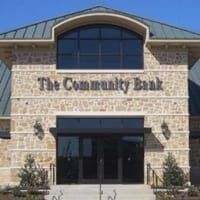Giving Kids their Childhood Back on Chicago’s Troubled South Side
A cop builds community trust along with an after-school safe space
It’s hard to stand on “the most dangerous block in Chicago” and think that this was once a place where dreams were born, but Jennifer Maddox does it every day. The Parkway Gardens complex on Chicago’s South Side was built in the mid-1950’s as housing for a growing African American middle class. Its address once spelled success; Michelle Obama’s family owned a co-op here in the early ’60’s. Maddox remembers the South Side of her childhood as a carefree place where kids rode their bikes up and down sidewalks and families watched out for one another.

From Hope to Fear
But this era of hope was short-lived. Parkway’s 700 units were converted into low-income rentals in the 1970’s; successive decades saw rival gangs stake out territory on either side of the complex. By 2007, Jennifer Maddox had become a cop patrolling the neighborhood and its residents were under siege. “Parents put kids to bed to the sound of gunshots. Teens who had nowhere to go, nothing to do, were getting into trouble,” Maddox remembers. Wanting to help, this single mother of two took a second job as a security guard at Parkway Gardens. Seeing a desperate need for a safe space, she convinced management to give her a basement storage area and transformed it into an after school program she named Future Ties. Local mothers helped staff the program while earning work experience qualifications for public assistance.
Working to Heal a Community
In 2011, Related Midwest bought Parkway Gardens and instituted a major capital upgrade. Sensing opportunity, Maddox applied for and won the contract to provide on-premise after-school services. She promptly hired six of her mom volunteers, then worked with the University of Chicago’s Community Programs Accelerator to incorporate Future Ties as a non-profit. Taking note of her initiative, Maddox’s superiors in the Chicago Police Department promoted her to a role in its Office of Community Affairs. She now trains officers on how to improve communications and establish trust with residents in low-income neighborhoods. “What makes a strong community is when everyone has buy-in; we need each other. We have to work together to give our young people a chance at survival,” Maddox says, “Every day I look in their faces and I see hope.”
Support to Grow
Last year, Jennifer Maddox was named one of CNN’s Top 10 Heroes for 2017, bringing Future Ties national recognition just as the program expanded year-round with the addition of a summer camp. When her teen volunteers voted on a trip to a theme park last summer, Maddox was grateful to fund the expedition with ongoing support from Hanmi Bank, which was connected to Future Ties through Impact Deposit Corp’s Charity Services Centers.
Fatima Mutalibov, Hanmi’s local Branch Manager, sees the resulting relationship as a natural fit. “Hanmi’s charter includes a commitment to helping our communities grow stronger,” she says, “We’re honored to make a positive impact in the lives of Jennifer’s students, to help them believe in and pursue their dreams.” This year, Maddox’s senior students have asked for help learning how to set up a bank account, apply for credit and develop a budget as they prepare for college. Mutalibov is looking forward to offering them financial literacy classes through Hanmi’s corporate volunteer program.
Learn More
Future Ties | www.futureties.org | facebook.com/afterschoolandsummermatters
Hanmi Bank | www.hanmi.com
Charity Services Centers
CNN Hero Jennifer Maddox













